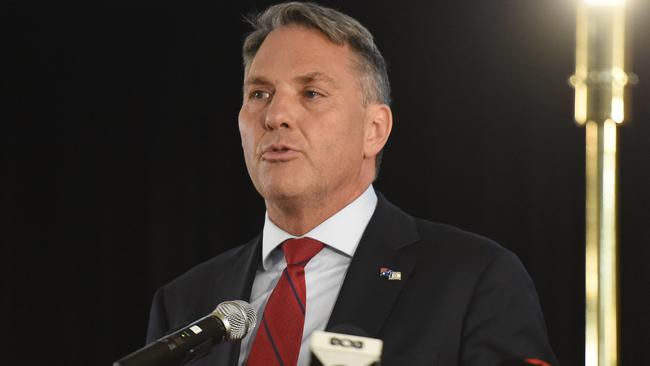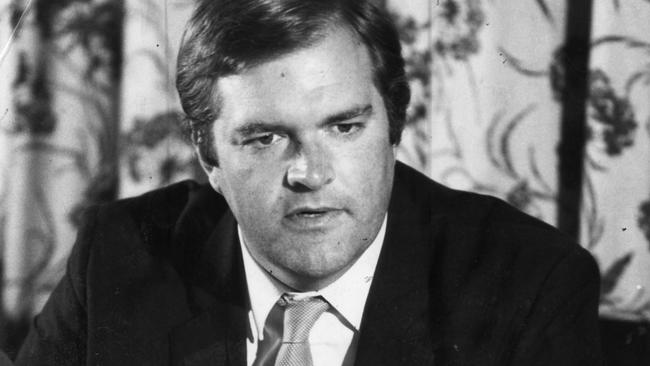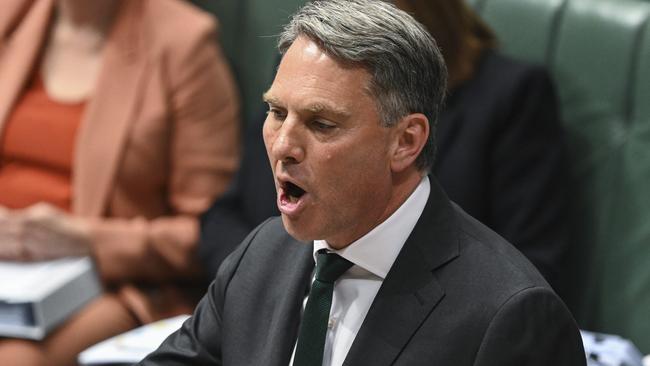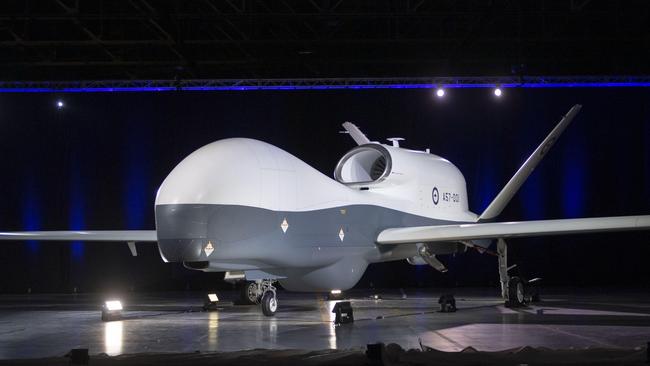
Israel is now fully aware of its deficiencies and is able to respond. Australia shows no signs of understanding the implications of the disastrous mistakes that have been made, and rectifying them will take many years. We have not even started.
The best available document to help our defence people is the remarkable list of disasters set out by my colleague Greg Sheridan in The Weekend Australian. But Sheridan was too kind and left out a number of disasters. As yet, we don’t know the reasons for the Israeli failure, but we do know why Australia has made so many mistakes since Kim Beazley ended his five-plus years as defence minister in 1990.
I suspect the structural forces that emerged post-Beazley, which have decimated Australian defence capability, also played a role in Israel’s unpreparedness.
The reasons for the Australian litany of mistakes were best summarised just after the First World War by the then-prime minister of France, Georges Clemenceau, who declared: “War was too important to be left to the generals.” Beazley may not have consciously patterned his ministry on the Clemenceau doctrine, but he certainly followed it.

Of course, Beazley talked at length to the top brass in defence, but he also conversed with senior officers who had the job of operating the weapon systems and preparing for combat. They would tell him the truth about what was performing brilliantly and what was not up to the mark. And they would also discuss views on future strategies. Kim Beazley knew exactly what was happening in this department.
Robert Ray followed Beazley and occupied the role for the next six years.
I suspect he also followed the Beazley pattern.
But the 15 ministers who occupied the position for the next 27 years were very different from Beazley.
Most had only short periods in this vital portfolio and relied far too much on “the generals” at the top.
Dutton rectified the French submarine mistake but did not tackle the others. There were great hopes that the current Defence Minister Richard Marles would emerge in the Beazley mould, but like his predecessors, he has been captured by “the generals” at the top of the defence hierarchy.

If Marles operated in the Beazley mould, he would spend extended periods in the RAAF Tindal base conversing with top pilots who would tell him how they are concerned about the F-35 Joint Strike Fighter non-combat crashes and major equipment failures.
They would also point out that the F-35 JSF is simply no match for the Chinese Chengdu J-20. In any combat with the J-20, they would be flying a coffin, although the JSF crashes have shown the ejector seats work.
Because Marles and his predecessors have been relying on “the generals,” they are not across the details. Similarly, the frigate being designed and constructed by the British was a disaster from day one.
Senior helicopter pilots would have told the relevant minister that Taipan choppers were dangerous and should never have been ordered.
We are now acquiring the Triton unmanned aerial surveillance drone.
Sheridan says that once Triton was cutting-edge, but the Iranians have shown they can shoot down this type of UAV.
So the Americans have cancelled the program, but our “generals” allowed the Defence Minister to order the Triton, so the uninterrupted litany of mistakes continues. The military hierarchy structure often makes frank and open discussions between high and lower ranks hard to achieve.
Beazley showed ministers can bridge that hierarchy gap. The minister for defence is the most important position in the cabinet outside the prime minister, and it can’t be combined with deputy prime ministership, especially when we have a prime minister who is required to travel extensively abroad.

Why do the Australian top brass in the military constantly get it wrong? The first reason is that back around the turn of the century, the Coalition government declared that public servants need to take account of the views of the minister rather than give fearless and frank advice.
That caused many talented people to avoid joining the public service and it impacted the calibre of people in top military positions. Those who do take top positions are often skilled in combat but not in ordering equipment and are very vulnerable to high-pressure salespeople from overseas defence equipment organisations.
The ministers do not have the necessary offsetting information. Sometimes decisions, like the Frigate, the French submarine, and the JSF, are actually made by the politicians for political reasons.
In Israel, some of the people at the top of the defence forces may be embracing a type of woke culture that is spreading through many government organisations and is plaguing many of Australia’s top companies.
Consensus becomes part of the routine, and mavericks are not encouraged in such a culture. It would not have been helped in Israel by the deep split in the country between the politicians and the legal community and the efforts to align Middle Eastern nations.
Israel now faces a long war. But unlike Australia, Israel has a well-equipped set of defence forces that are superior to others in the region. We were once in that situation, but defence ministers post-Beazley and Ray have simply not done the job properly to maintain our standards. We rely on the US, which is now indirectly involved in two wars — Ukraine and the Middle East.
Marles needs to talk at length with Beazley and then decide whether he wants to be Deputy Prime Minister or Defence Minister. If he chooses defence, then he needs to spend long periods of time in our key defence bases.
He should talk seriously to the troops that “the generals” want to put in remote areas, which will cause many to leave and make it harder to recruit.
And then he must embrace the same approach to all the other “Sheridan mistakes,” plus those that Sheridan did not mention.
Talking with those on the ground must be augmented with outside advice. It is time-consuming but essential for our national security.







At the start of October 2023, Australia and Israel shared a common feature — both were unprepared for a defence emergency.